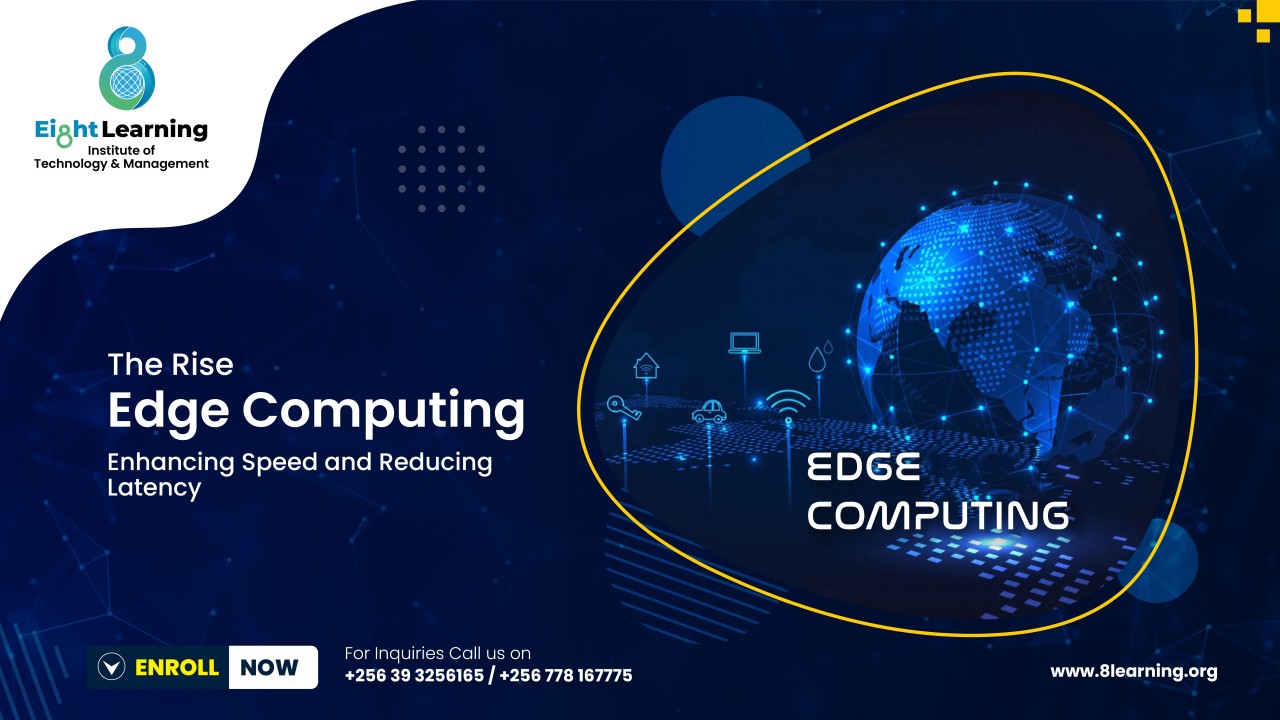Edge computing is rapidly becoming a game-changer in the tech world, offering solutions to the increasing demands for speed and efficiency. By bringing computation and data storage closer to the location where it is needed, edge computing reduces latency and enhances overall system performance. In this newsletter, we explore the benefits of edge computing, its impact on various industries, and how you can stay ahead in this evolving field with 8Learning’s courses.
What is Edge Computing?
Edge computing refers to the practice of processing data closer to the source of data generation rather than relying on a centralized data-processing system. This approach minimizes the distance data must travel, thereby reducing latency and improving response times. It’s particularly valuable in applications that require real-time processing and low latency, such as IoT devices, autonomous vehicles, and smart cities.
Benefits of Edge Computing:
- Reduced Latency: By processing data locally, edge computing significantly reduces the time it takes for data to travel to and from a centralized cloud server. This results in faster data processing and improved application performance, crucial for time-sensitive applications.
- Improved Speed: Edge computing enhances speed by enabling quicker data processing and decision-making. Applications can operate in real-time without waiting for data to be sent to a remote server and back.
- Enhanced Privacy and Security: With data processing occurring closer to the source, sensitive information does not have to travel over long distances, reducing the risk of interception and enhancing data security.
- Cost Efficiency: Edge computing can reduce the amount of data that needs to be transmitted over the network, leading to lower bandwidth costs and reduced dependency on cloud storage.
- Increased Reliability: Edge computing systems can operate independently of centralized cloud servers, providing greater resilience and reliability, especially in remote or underserved areas.
Impact on Various Industries:
- Healthcare: Edge computing enables real-time monitoring of patient data and supports telemedicine applications by processing data locally and delivering immediate insights to healthcare providers.
- Manufacturing: In manufacturing, edge computing supports predictive maintenance by analyzing data from machinery in real-time, thereby preventing downtime and improving operational efficiency.
- Retail: Retailers use edge computing to enhance customer experiences through real-time inventory management, personalized promotions, and faster transaction processing.
- Smart Cities: Smart city initiatives benefit from edge computing by improving traffic management, environmental monitoring, and public safety through localized data processing.
Conclusion
Edge computing is revolutionizing how data is processed and utilized, offering significant advantages in speed, efficiency, and security. By staying informed and investing in relevant education, you can capitalize on these advancements and drive innovation in your field. Explore our courses at 8Learning to enhance your skills and lead the way in edge computing.





